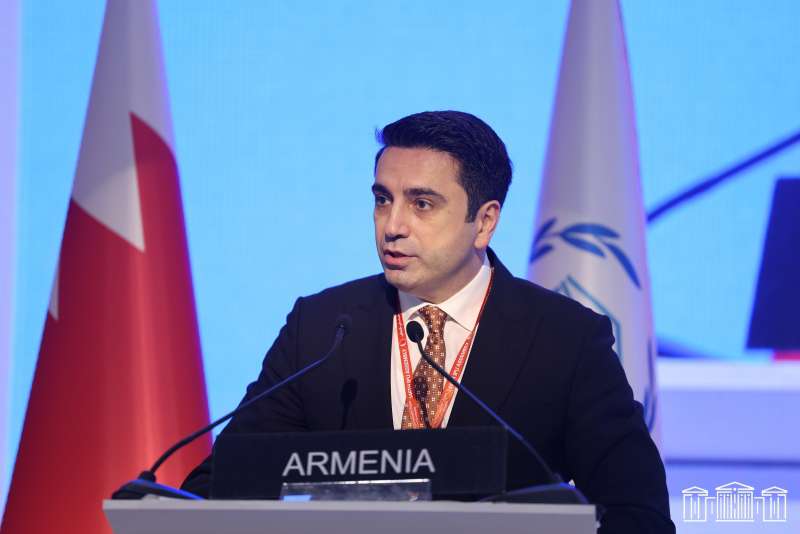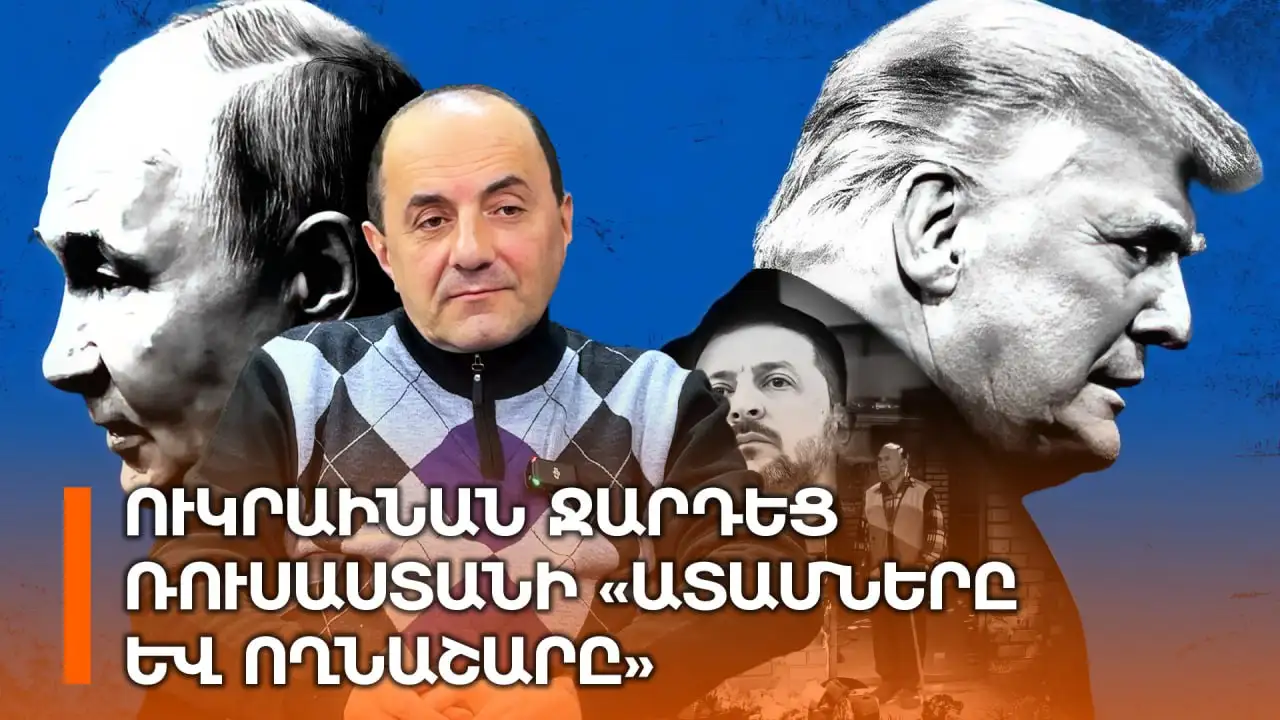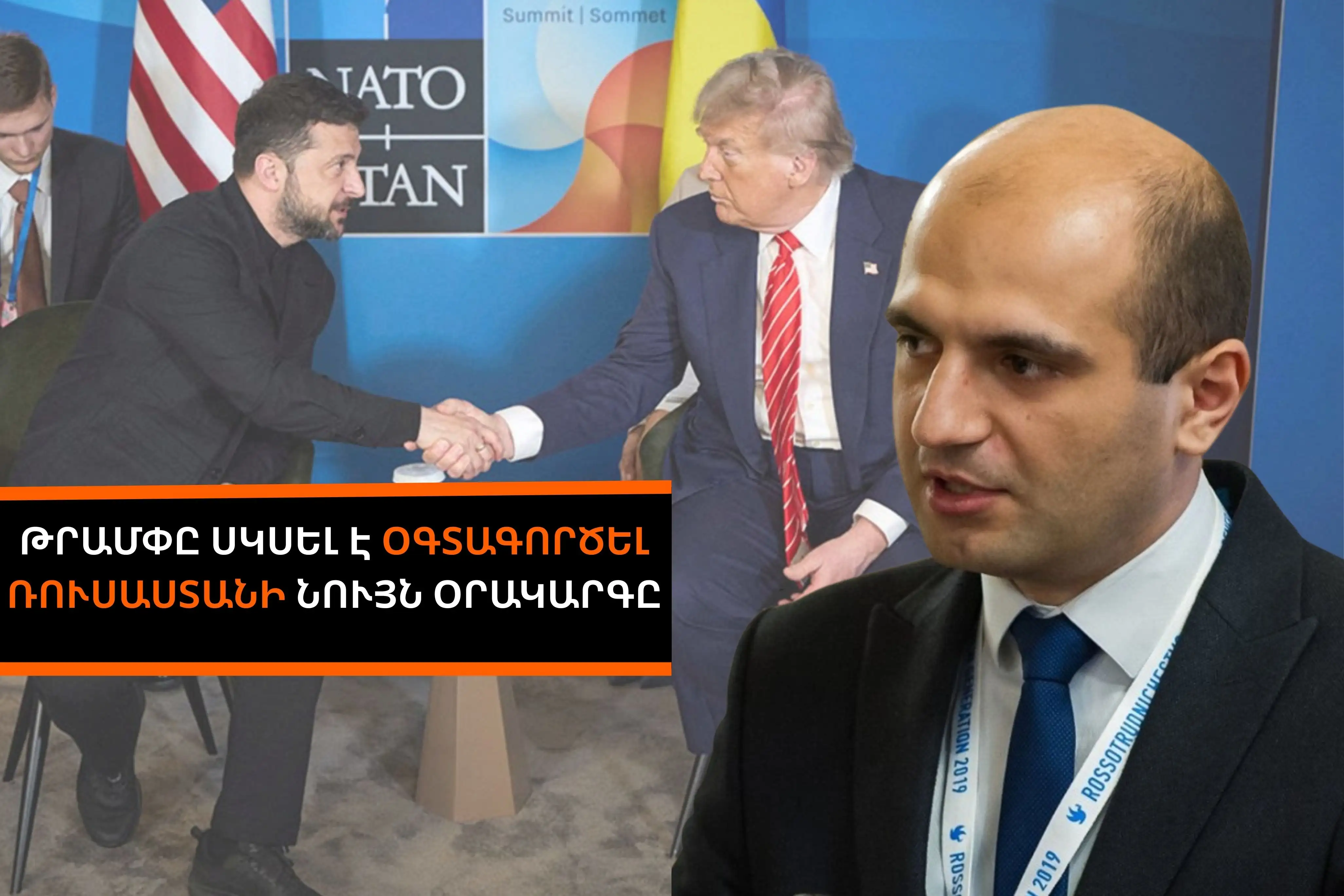The delegation led by RA National Assembly Speaker Alen Simonyan is participating in the Inter-Parliamentary Union (IPU) Assembly in Bahrain, which is dedicated to peace and security issues.
More than 1,700 delegates from 136 countries are in Manama, the capital of Bahrain, and heads of more than six dozen parliaments will make speeches. The Conference covers all statutory bodies of the Inter-Parliamentary Union, including the Board of Governors, Standing Committees, Committees on Parliamentary Affairs, Human Rights, and the Middle East, as well as the Forums of Women Parliamentarians and Young Parliamentarians. The subject of general discussions is mainly in the context of promoting peaceful coexistence and inclusive societies. Also on the agenda is the presentation of the features of the national legislation related to the fight against intolerance.
The Speaker of the RA National Assembly, Alen Simonyan, referred to the situation in Armenia and Nagorno-Karabakh, detailing the problems related to the Lachin crisis caused by the Azerbaijani aggression.
"Mr. President,
fellow parliamentarians,
ladies and gentlemen
I thank the Bahraini colleagues for the warm hospitality and the well-organized congress.
Climate change, wars, and natural disasters. Humanity must be resilient in the face of these adversities.
Allow me to express my condolences to the people of Turkey and Syria for the thousands of deaths caused by the recent devastating earthquake.
The main principles of peaceful coexistence - respect for sovereignty and territorial integrity, equality, self-determination, and non-interference in internal affairs - should regulate relations between states. However, we see that these principles often need to be revised.
Peaceful coexistence goes hand in hand with unity, which is necessary for social, economic, and political stability. Individuals and states can work together to achieve common goals and resolve conflicts peacefully. This is important for a stable and harmonious environment for the common good.
Now allow me to turn to our region and my country, Armenia, where national minorities - Yezidis, Kurds, Russians, Ukrainians, Assyrians, Jews, and Greeks - live side by side as equal members of our society, enjoying all rights. According to Armenian legislation, four representatives of national minorities are members of our parliament.
The cornerstone of our international policy is maintaining peaceful relations with all countries. However, we face many threats. Tension continues in the South Caucasus. Since May 12, 2021, neighboring Azerbaijan has violated the territorial integrity of Armenia and illegally occupied about 150 square kilometers of territory. Despite the challenges, we aim to work together to build a sustainable world.
Some say that Armenia seeks to expand its territory. Let me be clear about that. Armenia has no territorial claims against any of its neighbors.
I will tell you about the blockade of the Lachin Corridor, which is the only road connecting Armenia and the world to Nagorno Karabakh, which ethnic Armenians have inhabited for over a thousand years.
The blockade is a gross violation of the Trilateral Declaration of November 9, 2020. The statement says: "The Republic of Azerbaijan guarantees the safe movement of citizens, vehicles, and cargo in both directions through the Lachin Corridor." That road has been inaccessible to civilians and other vehicles since December 12, 2022, and has been blocked by dozens of Azerbaijani agents masquerading as "environmental activists."
Around 120,000 ethnic Armenians living in Nagorno-Karabakh lacked essential goods and services. They are deprived of vital medicines and medical care. Power and gas outages have led to dire hardship. During the night, the residents of Nagorno Karabakh are subjected to loud religious appeals by the Azerbaijanis, and their houses are illuminated with floodlights.
Recently, Azerbaijan published a fake video in which Armenia allegedly supplies weapons to Nagorno Karabakh. Unfortunately, Azerbaijan is not limited to the disinformation and persecution described above.
Just a few days ago, on March 5, three Nagorno-Karabakh police officers were killed and another wounded in a pre-planned ambush ordered by Azerbaijan.
Dear colleagues, I ask if these are not ethnic cleansing.
Racial and religious intolerance and violence against people should not be justified.
According to Nelson Mandela, "No one is born hating another person because of the color of his skin or his origin or religion."
The European Court of Human Rights applied measures against Azerbaijan regarding the blockade, and the Commissioner for Human Rights of the Council of Europe urgently called for its elimination. Amnesty International, the European Union, and the Helsinki Commission have independently called for an immediate end to the blockade.
On February 22, 2023, the International Court of Justice of the United Nations ruled that Azerbaijan should ensure "unimpeded movement" through the Lachin Corridor. In a separate ruling, the court unanimously rejected Azerbaijan's false claim that Armenia had planted mines.
Azerbaijani authorities claim the Lachin Corridor is unblocked, but the harsh reality says otherwise.
In conclusion, I firmly believe that democracy, the rule of law, respect for human rights, and peaceful coexistence are the pillars on which humanity must live in peace and harmony.
Thank you," said the Speaker of the National Assembly.
The delegation led by the Speaker of the National Assembly consists of Hasmik Hakobyan and Tsovinar Vardanyan, members of the RA National Assembly delegation to the Inter-Parliamentary Union, Davit Arakelyan, Chief of Staff of the National Assembly of the Republic of Armenia.




















